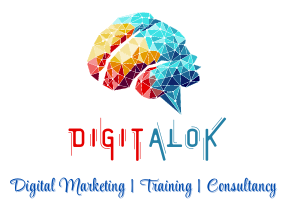The Art of Content Marketing: Creating Valuable Connections in the Digital World
In a world saturated with advertisements and promotional messages, businesses are increasingly turning to content marketing as a powerful strategy to engage with their target audience, build trust, and drive conversions. Content marketing focuses on creating and distributing valuable, relevant, and consistent content to attract and retain a clearly defined audience. Let’s explore the importance of content marketing and how businesses can leverage it to achieve their marketing goals factors of this transition. But is it so important to be there? Let’s understand.


Why Content Marketing?
Builds Trust and Credibility: By providing useful and informative content, businesses can establish themselves as thought leaders in their industry, earning the trust and credibility of their audience.
Drives Engagement and Brand Awareness: Creating compelling content that resonates with your target audience can help increase brand awareness and foster deeper connections with customers.
Improves SEO and Website Traffic: High-quality content that is optimized for search engines can help improve your website’s visibility in search engine results pages (SERPs) and drive organic traffic.
Generates Leads and Conversions: By offering valuable content that addresses the needs and pain points of your audience, businesses can generate leads and nurture them through the sales funnel towards conversion.
Fosters Customer Loyalty: Providing ongoing, valuable content can help retain existing customers and encourage repeat business, leading to long-term customer loyalty.
Strategies for Successful Content Marketing
Understand Your Audience: Conduct research to identify your target audience’s needs, preferences, and pain points. Tailor your content to address these concerns and provide solutions.
Create Compelling Content: Develop high-quality, relevant, and engaging content in various formats such as blog posts, videos, infographics, podcasts, and social media posts.
Optimize for SEO: Incorporate relevant keywords, meta tags, and backlinks to improve your content’s visibility in search engine results and attract organic traffic.
Promote Your Content: Share your content across multiple channels, including social media, email newsletters, and industry websites to reach a wider audience and drive traffic to your website.
Measure and Analyze Performance: Use analytics tools to track the performance of your content marketing efforts. Monitor key metrics such as website traffic, engagement rates, lead generation, and conversion rates to optimize your strategy.
Case Studies: Successful Content Marketing Examples
HubSpot: HubSpot’s blog is a prime example of effective content marketing, providing a wealth of resources related to marketing, sales, and customer service to educate and engage its audience.
Red Bull: Red Bull’s content marketing strategy revolves around extreme sports and adventure, creating captivating videos and stories that resonate with its target audience of adrenaline junkies.
Airbnb: Airbnb’s “City Guides” and “Experiences” blog content serve as valuable resources for travelers, offering insider tips, recommendations, and insights to inspire and inform their audience.
Conclusion
Content marketing has emerged as a vital strategy for businesses to connect with their audience, establish credibility, and drive growth in the digital world. By creating valuable and engaging content that addresses the needs and interests of their target market, businesses can build lasting relationships, drive brand loyalty, and achieve their marketing objectives. Embracing content marketing as a core component of your marketing strategy can help set your business apart in a competitive landscape and captivate your audience’s attention in meaningful ways.
